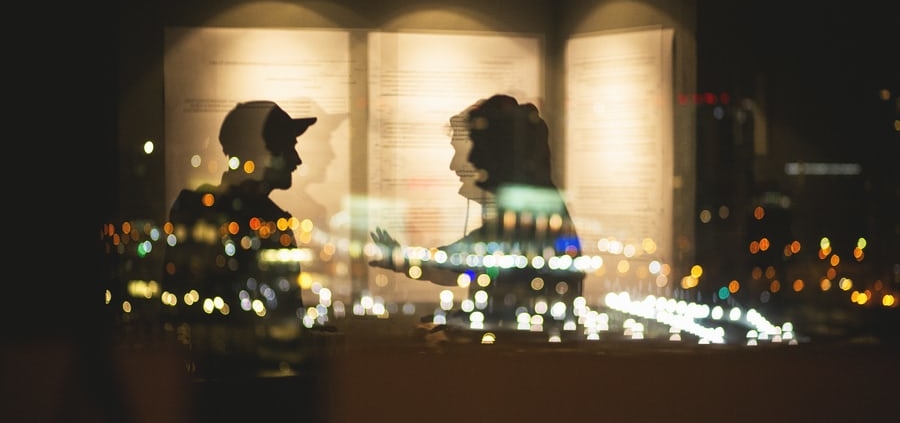“We Are in the Same Storm, But Not in the Same Boat” – The Impact of Covid-19 on Our Lives
For many of us, the Corona virus and the governmental measures that have been taken, have led to radical changes and challenges on various political, social and economic levels, as well as on a deeply personal level. Things we took for granted are no longer permitted or socially accepted. Traveling, meeting, handshakes, hugging, and going to cultural or political events have been called off or restricted. In many countries, restrictions of movements and infringements of human rights were often justified and legitimized in the name of “social distancing”. In the context of these developments, Cordula Reimann published her book titled Das Alleinsein-Einsamkeit-Paradox: Persönliche und gesellschaftskritische Beobachtungen”. In it, Reiman takes a closer look ay different aspects of loneliness and the ways in which the current situation impacts individuals and societies. For us, that’s enough reason to come together and discuss some of these developments in greater detail.
Together with Cordula Reimann, Wiebke Warkentin from the Willy Brandt Center Jerusalem initiated a series of online exchanges on “lockdown, isolation and loneliness” in October-November 2020. The seminars focused on three thematic areas: loneliness as a personal and socio-political challenge and phenomena before and after Corona; political activism in times of lockdown and isolation; and the role of social media and its impact on loneliness.
This seminar series attracted a very diverse group of participants, coming from different walks of life and countries: They ranged from staff and volunteers from international and national non-governmental organizations involved in peacebuilding, development and human rights, thorugh academics and political activists, to interested and curious citizens.
Throughout all three seminars, two arguments were especially prominent : The idea of Covid-19 as a catalyst for social ill-developments, and Covid-19 as an opportunity for personal and social change.
Covid-19 as catalyst for social ill-developments
It seems safe to say that the Corona crisis exposed existing social inequalities, and further exacerbated them. Covid-19 worked as a catalyst for social divisions and conflicts in all of the countries and regions from which the participants came from: those who belonged to the least socially privileged, have suffered most – worldwide and in every country; those who were struggling financially, socially or mentally before the crisis, now suffer even more so; those who were lonely before the Corona crisis, now feel even lonelier – many are struggling with the new routine of home office, the reality of “social distancing”, and the 24/7 virtual world.
Early data suggests that loneliness, alongside serious mental health disorders such as depression and anxiety, has increased dramatically in this period. Other – equally worrisome – data suggests that domestic violence has increased as well. Irrespective of the size of living space or wider social-political contexts, it was clear well before the pandemic that if people or families are forced to spend all of their time at home together, there is a risk that things may escalate to physical violence. Some participants suggested that intra-family tensions and violence will continue to increase for as long as we live under these conditions.
Apart from domestic violence, we can witness in many countries – and particularly in Germany – an increased social and political polarization along the lines of two political camps; these are reflected in the public debate and (social and traditional) media: the anti-Corona demonstrators on the one hand, and the citizens dutifully supporting the governmental Corona measures on the other hand. Participants shared their feeling, that fear and anxiety are driving the current public debate around Corona in many European countries. While “conspiracy theories” are on the rise and in some countries more popular than others, all participants shared the worrying effects of the lockdown-restrictions on political activism in their countries. In some participants’ countries of origin, civil society has been struggling with shrinking spaces for political opposition and critical voices even before the Corona crisis. Some participants, especially from the Middle East and South Asia, described how these spaces have decreased even more, and political activism become even more dangerous during and after the first lockdown.
Covid-19 as an opportunity for personal and social change
Covid-19 functioned not only as a catalyst for social ill-developments. Some participants considered Covid-19 as an opportunity for personal and social change. Some people – particularly the more extrovert ones, who love socializing and mingling with others – may have not felt lonely before the epidemic, but are now confronted with a new social and emotional reality: No more sharing meals or celebrating with friends, no spontaneous trips to the cinema or weekend outings with the family. Most, if not all, social and business contacts have been maintained and cultivated virtually, and social media has become a loyal but demanding friend.
The seminar’s participants discussed how they were able to gain something new and positive from the Corona experience of isolation and loneliness, embracing the Corona crisis as a great opportunity to learn and grow as individuals and as a society. Many participants shared how they arranged virtual evening meals with family members, how lovers met for a virtual drink and friends for a daily online coffee catch-up. Participants stressed that creating these daily rituals and consciously nurturing friendships online helps people feel less alone and lonely. Some participants mentioned that these social distancing measures, home-office and lockdown led to increased hours on social media, and to strong emotions of annoyance, boredom and anxiety – but sometimes also invoked a critical self-reflection about life and work priorities.
Participants shared the ways in which they embraced the Corona crisis as a unique opportunity for personal and social change. They illustrated how they accepted and understood the Corona crisis as a welcomed – albeit imposed – break from the hectic hustle-and-bustle of their daily work and life routine. They recognized this time as a time for self-reflection and self-care, spending more quality time with their family members, learning new skills or new things about themselves. A handful of participants described how they dealt resiliently and constructively – and often with a great sense of humor – with being alone: Practicing mindfulness rituals and self-care, nurturing their social contacts online and using social media mindfully.
Although these seminars took place during the relatively-early days of the pandemic, it will be interesting to see how we – as a society – have further developed our inner capacities of resilience and defiance during the Corona crisis. This resilience might also foreshadow our ability to destigmatize loneliness and understand it as a complex, personal and social phenomena that affects all of us in one way or the other.
“We are in the same storm, but not in the same boat”’?
The seminar highlighted the differences and similarities in handling the Corona crisis, and raised questions regarding isolation, loneliness and lockdown. It also showed that our own privileges, solidarity and empathy have a great impact on how we experience the ongoing Corona crisis and its aftermath. Metaphorically speaking, being aware of one’s own privilege and sharing one’s own vulnerability will not change the direction and intensity of the storm, but it may offer an opportunity to build a bigger and safer boat – or to stay on land together.
*
(Dr. Cordula Reimann is a political scientist and conflict and peace researcher, as well as a facilitator, coach, trainer, activist and author [see www.corechange.ch and www.corechange-coaching.ch]. She has recently published her book about loneliness, titled “Das Alleinsein-Einsamkeit-Paradox”. This book brings interviews with over 150 people from around the world, alongside autobiographical reflections and underpinning international and interdisciplinary research. The book raises socio-critical and philosophical questions on how the issue of loneliness is currently being dealt with, and whose interests are thereby served.)
*
In an online workshop, we will create a safe space for professional staff of civil society organizations, volunteers, peacebuilding and human rights activists to discuss coping mechanisms and strategies on how to deal in these times of uncertainties, isolation and separation. Those challenges and implications include our professional and political work but also the mental health, well-being and safety of our staff and partners.
Online Seminar
“Shrinking spaces for civil society in times of Corona”
Wednesday, February 3rd, 18:00 – 19:30 hours CET | 19:00 – 20:30 hours Palestine/Israel
Online Workshop
“How to deal with uncertainty & isolation? Implications for political activism”
Wednesday, February 24th, 16:00 – 18:00 hours CET | 17:00 – 19:00 hours Palestine/Israel
Please register for the sessions via this form https://forms.gle/wHohEcxkag9Kzyz39. We are happy to have you for both the seminar and the workshop on zoom. You can also participate in one of the events as they will be independent of each other. If you have any questions, please send an email to event@willybrandtcenter.org.



